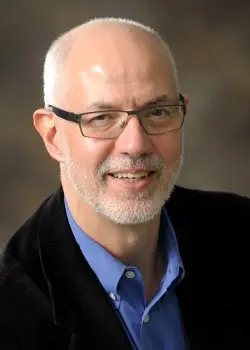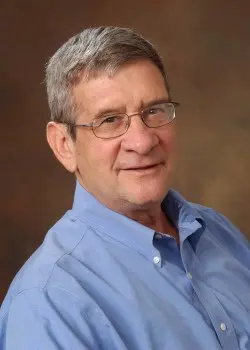Deliberate Speech, Activist Speech: POV From Two Emeritus Faculty
by Professors Emeritus Nicholas Burbules and Walter Feinberg for Inside Higher Ed / Nov 13, 2024
Burbules' opinion piece argues that activist speech, while generally protected, exists uneasily in a campus context:
How Activist Speech Threatens Educational Values
Many universities are struggling to reconcile the principles of free expression and campus safety. This is not a new issue, but it has taken on greater salience in the midst of protests over the Middle East. As with every case of conflicting principles, there is no single right solution. We want all members of the campus community to have space to protest, and we want all members to feel safe from harassment, defamation or the threat of violence.

As we think about these tensions, here is a distinction that helps clarify the issues, but also complicates them. It comes from Iris Marion Young’s 2001 essay describing two archetypes of political actors, the “deliberative democrat” versus the “activist”; from her work I derive two distinct types of speech, deliberative speech and activist speech. Deliberative speech is the communicative process of inquiry, of seeking to reach agreement or compromise, of collaborative problem-solving or decision-making—or, failing all of that, at least pursuing an understanding of different positions and the reasons behind them.
Deliberative speech operates by certain rules: taking turns, listening to one another, respecting that there can be different positions on issues, and engaging one another with some degree of civility—even when disagreements might be vigorous and deeply felt. Deliberative speech is the speech of the conference room, the classroom, the laboratory, the university senate. For obvious reasons, it is central to the mission and values of the university.
Activist speech operates by very different rules. It is not speaking with someone else; it is a person or group speaking at them. (Prepositions are revealing here.) Activist speech is a political tool wielded to challenge, to criticize, to accuse, to disrupt. Let me be explicit in saying that activist speech is, generally, protected speech, except for cases of harassment, defamation and threats of violence. It is a legitimate, sometimes necessary, form of political discourse. For some, it may feel like the last resort to be heard when deliberative discourse has broken down, or when people feel excluded from or ignored within the deliberative space.
Activist speech can be a strategy designed to gain a seat at the deliberative table—where the other mode of speech predominates. (Young, in her essay, is especially attuned to the potential limitations of deliberative speech, and the necessity of activist speech as a challenge or corrective to those limitations.) But activist speech itself is at odds with deliberative processes.
What I would like to suggest in this essay is that this kind of activist speech, while undeniably of some value to students and faculty who are learning how to become effective political actors and citizens, poses several challenges for the university context; even where such activist speech is protected by law and university policies, it coexists uncomfortably with the mission and values universities exist primarily to promote. When we tolerate activist speech as a form of free expression —or engage in it ourselves—we must also acknowledge the ways in which such speech can compromise other, more central, university objectives.
Read Burbules' full opinion piece at insidehighered.com ...
###
In a response letter to this column, Walter Feinberg writes that higher education should view the two forms as part of a dialectic to engage and develop students:
Deliberative Speech and Activist Speech Both Have Value
As my colleague Nick Burbules points out in his timely article on deliberative and activist speech ("How Activist Speech Threatens Educational Values,” October 8, 2024), many universities “are struggling to reconcile the principles of free expression with campus safety.” While the distinction he makes between deliberative and activist speech is useful for addressing this struggle, there is a danger in identifying one—deliberative speech—as central to university values and the other—activist speech—at best as peripheral to the mission of the university and the source of potential danger.

True deliberative speech has an important aspirational role to play in the education of college students but, as part of the long tradition of civil disobedience, so too does activist speech. From civil rights, to anti-Vietnam, and anti-Apartheid, activist speech has played a major role in positive social change, a role that supports some of the basic human values—equality, free expression, and emancipation—central to the very idea of a university.
It is true that when activism is directed toward the practices of the very universities that students attend, safety issues, both real and imagined, can and do arise. The question is whether the speech itself is the source of this reduced safety, which Burbules’s letter seems to suggest. In reality, the primary source of responsibility will differ depending on individual cases. True there are situations in which protestors get out of hand, both inside and outside of university settings. January 6, 2021, comes to mind.
However, contrary to Burbules’ idea that activist speech is in tension with university values, such speech often arises in response to those actions of universities as corporate entities when they act so as to contradict basic human and academic values. Past support for companies in apartheid South Africa is a prime example.
Burbules needs to clarify whether or not he thinks that activist speech is largely a cause of an unsafe university climate. By labelling activist speech as peripheral to the university, he reinforces those who believe that activists are outside trouble makers who have no place in a university. The problem with such an interpretation is that it blames protesters a priori rather than encouraging an open inquiry into the action of all relevant agents—say an unprepared administration or an undisciplined police force, or outside political pressure as well as those who do engage in activist speech.
Read Feinberg's full response at insidehighered.com ...